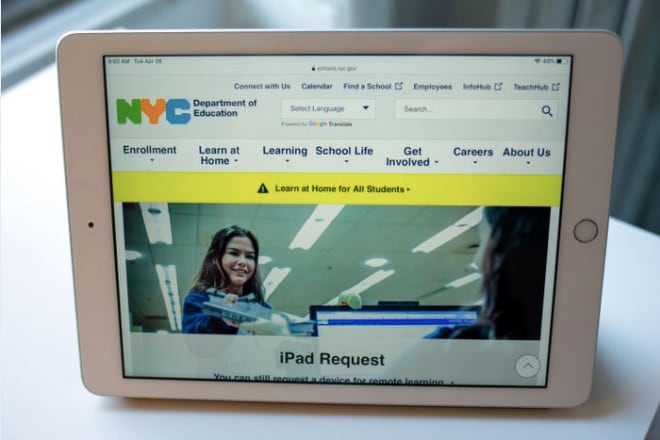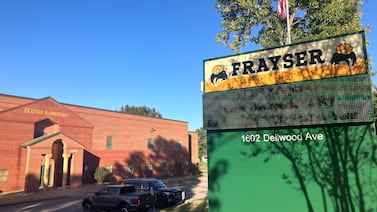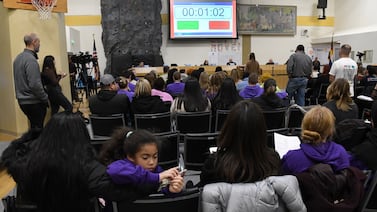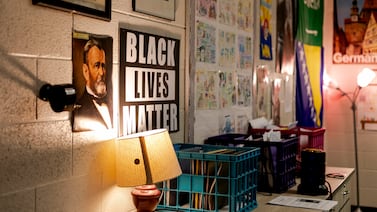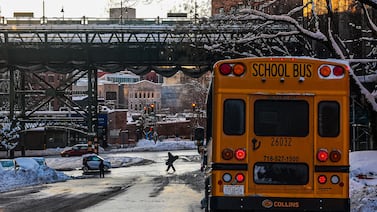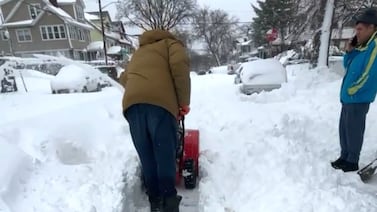
This story was originally published on April 28, 2020 by THE CITY.
Hailing public school teachers Tuesday, Mayor Bill de Blasio declared “flexibility” the key to working with families in the struggle to keep students connected with school via laptops, tablets, WiFi and hotspots.
Yet in the first weeks of remote learning, which began on March 23, some city schools staff reported some parents to the state child neglect and abuse hotline after kids failed to sign on for online classes, say attorneys and other advocates who work with low-income families.
Department of Education personnel called authorities in their capacity as mandated reporters, obligated by law to alert state officials to signs of child neglect or abuse.
Investigations by the Administration for Children’s Services ensued, as must happen within 24 hours once calls come in — bringing child protective workers to families’ homes, parents and their advocates say.
Kindergartener ‘Locked Out’
Gabriel Freiman, attorney-in-charge of the education and employment practice at Brooklyn Defenders, said some clients got knocks on the door from the Administration for Children’s Service as recently as two weeks ago.
One mother, he said, kept in constant contact with the school’s attendance teacher, working to develop a plan using paper packets for her children while she waited for UPS to deliver an electronic device sent by the Department of Education.
She hadn’t initially filled out a form requesting a tablet for her son because she already had a device for the kindergartener — only to find it was not compatible with programs used by the school, said Freiman.
“But apparently at the school level, the principal later decided that unless our client also ensured that her son went online for their Google Meets at 9 a.m., he would be locked out if he missed them,” added Freiman.
“And so when he was marked out for three days in a row in early April, the school staff still made a call to the [state hotline] reporting suspected child neglect.”
The parent had an existing child welfare case against her in court, and the new report could weigh against her likelihood of a favorable settlement, said Freiman.
When the investigator showed up, said Freiman, the woman thought ACS was coming to take away her child.
Under special COVID precautions, ACS said, its child protective workers must still show up at a home to lay eyes on a child but can now see children in doorways and may conduct other parts of the investigation by video or phone.
Joyce McMillan, family advocate at Sinergia and founder of the Parent Legislative Action Network, says mothers she works with in homeless shelters have been threatened by children’s school staff with a call to the child neglect hotline — even as they struggled to get diapers, much less share internet limited shelter hotspots.
“If we know this is the population of people that we’re working with,” asked McMillan, “why are you using informants if you know [families] can’t comply?”
Behind Closed Doors
Teachers and school officials are by far the most frequent callers to the State Central Register for Child Abuse and Maltreatment, filing nearly 4,700 reports in New York City from November through January, according to ACS.
Those numbers tend to dip in the summer months, while children are not in view of teachers. When schools shut their doors in mid-March, and kids retreated into their homes, concerns that serious cases of neglect or abuse would go unnoticed during a time of intense family stress loomed large.
As of April 9, call volume to the State Central Register had decreased slightly, according to the state Office of Children and Family Services, which declined to provide actual figures without a formal Freedom of Information Law request.
Jeannine Smith, a spokesperson for the agency, stated that “it would be premature and inaccurate to consider this a trend.”
Under a decade-old agreement with ACS, the Department of Education instructs its personnel to call the hotline whenever “a parent fails to ensure his/her child’s prompt attendance in school or keeps the child out of school for impermissible reasons.”
Memo’s Dual Message
Last week, DOE sought to clarify when to lodge a report. On April 20, it issued a memo on child maltreatment intervention during remote learning.
The memo stressed that schools should only make reports to the State Central Register after attempts to contact and offer support services and technology to the family have been exhausted.
“Before calling in a report to the SCR, school staff must make every effort to confirm that lack of access to technology is not the primary reason for a child’s failure to participate in remote learning,” the document reads.
But the memo also stresses: “school personnel are still mandated reporters when working in their professional capacity and must continue to follow the requirements.”
A Department of Education spokesperson told THE CITY, about the parent investigations: “We are looking into these cases.”
“Our priority is the safety of our students. We issued new guidance on how to report educational neglect to reflect the realities of remote learning and ensure schools exhaust options to contact family,” said DOE spokesperson Nathaniel Styer. “If an investigation finds a report was due to lack of access to technology, it will be dismissed.”
“School staff have a responsibility to keep students safe and report any concerns of neglect, and that includes in a remote setting,” Styer also said. “We’ve issued clear guidance to schools on how to adjust based on remote learning, but their legal responsibility is still in place.”
The state child welfare agency seconded the dual message.
“OCFS encourages local school districts and local departments of social services to partner to meet the safety and educational needs of children without penalizing parents unnecessarily. Child neglect standards remain the same regardless of learning setting or any other circumstance,” said Smith.
Freiman says the government directives put his clients in a no-win spot.
“People are sort of being told two things, which is: ‘It’s OK to do the best you can. You know, you’re not being expected to do more than what’s possible.’ And also: ‘If you can’t do the things that were requested, do you know you’ll get a report against you called in.’”
The result, he says, is compounded stress in a crisis: “That kind of increased anxiety, in my opinion, is not good for situations that are already incredibly tense for families.”
Serious Stakes
De Blasio said Tuesday that 247,000 iPads will be in kids’ hands by April 30 — too late for some families to avoid an investigation.
Jeanette Vega, training director at parent advocacy organization RISE, helped a mom navigate a child welfare hotline report earlier this month.
“The investigator called her and wanted to do a home visit. And when she asked what it was about, it was educational neglect,” said Vega.
The mother had been waiting for her child’s iPad for weeks, and had the emails to prove it, said Vega.
She called Vega to ask about her rights. Did she have to let ACS into their home?
Because the mother was able to prove that she has an iPad coming in from the DOE, ACS closed the investigation, said Vega.

